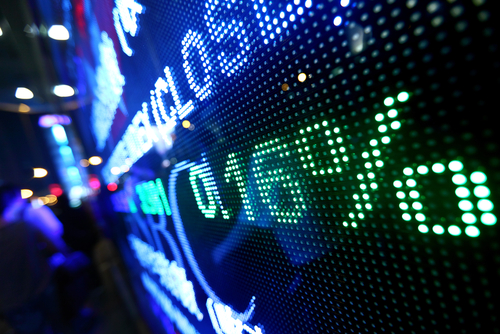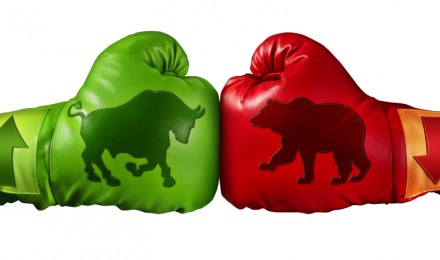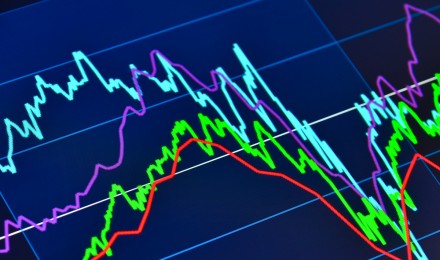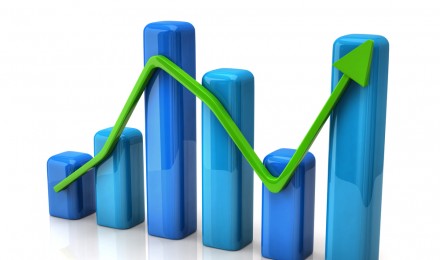Even if you do not trade stocks, stock market activities affect just about every aspect of your life, including employment, home sales, home purchased, employee benefits and retirement. Often called the “equities market” or “Wall Street,” the stock market provides a place for individuals and entities to buy and sell stocks for a certain price. In the United States and most developed countries, the stock market represents the financial center of the economy.
The stock market consists of a network of multiple entities known as stock exchanges, which include the New York Stock Exchange (NYSE) and National Association of Securities Dealers (NASDAQ) and American Stock Exchange (AMEX) in the United States. The global stock market includes stock exchanges in other countries, including the United Kingdom, Germany, Canada, China and Japan.
A company issues stock to raise money to expand its business, including building facilities, manufacturing innovative products, providing novel services and other uses. In return for buying stocks, investors obtain ownership in the companies. Which allow investors to realize potential profits by sharing in the firms’ earnings. When stocks appreciate, stockholder can sell their holdings make profits.
How Stock Exchanges Work
Stock exchanges are physical institutions consisting mostly of electronic networks, which provide a marketplace for stock buyers and sellers. Exchanges provide centralized record keeping and organize efficient marketplaces to conduct business on certain days and hours. In addition, exchanges provide centralized recordkeeping Investment firms, brokers, buyers and sellers must follow the exchange regulations to become “listed” or approval to sell stock on an exchange.
Exchanges provide a wide variety of service, including: issuing and redeeming securities, trading unit trusts, derivatives and pooled investments, and making dividend and interest payments.
The following table shows the seen largest stock exchanges in the world and market capitalization at the end of 2009.
Market Capitalization for Major Global Exchanges – 2009
|
Stock Exchanges |
Market Capitalization (USD Trillions) |
|
NYSE |
$11.84 |
|
Tokyo |
$3.31 |
|
NASDAQ |
$3.24 |
|
Euronext |
$2.87 |
|
London |
$2.80 |
|
Shanghai |
$2.70 |
|
Hong Kong |
$2.31 |
Source: Charles Schwab
The NYSE represents the largest stock exchange in the world, with 1.46 billion shares of 2,800 purchased and sold each day. The NYSE requires companies listed on the exchange, which range from new high-growth firms to blue-chip companies, to meet stringent requirements.
Brokers and Specialists
Professionals called specialists and brokers, who operate on the trading floor of the exchange, handle trading activities. Stockbrokers work for brokerage houses—trading the company’s account and executing buy and sell orders for brokerage clients. Brokers deliver buy and sell orders to floor specialists. The floor specialists managed auction activities and conduct transactions for one or more stocks. Specialists ensure a market for the stocks they manage. Sometimes, the specialist use funds from the companies they represent to maintain an active market for their stocks.
Primary and Secondary Markets
The primary market refers to the marketplace where private firms sell new issues of stock called “Initial Public Offering” (IPO) or bonds to the public for the first time. In the primary market, buyers purchase stocks directly from companies that issue the stock. In contrast, the stock exchanges make up the secondary market where investors buy stocks resold after the IPO. Unlike the primary market where transactions take place between investors and issuing companies, on the secondary market, all transactions take place investor-to-investor.
Over-the-Counter (OTC)
Regulations do not require companies to issue or sell their securities on stock exchanges. Moreover, smaller firms that do not meet the requirements of exchanges, and considered “riskier” investments, exchange hands on the “Over-the- Counter” (OTC) market or ”off exchanges.” OTC describes a decentralized marketplace where the buying and selling of securities take place. OTC consists of a network of dealers who transact business over the telephone, proprietary computer networks or fax. OTC markets lack the sophistication of the order matchmaking services provided by convention stock exchanges, such as the NASDAQ or NYSE. Bond transactions take place in OTC settings.
Even if you do not trade stocks, stock market activities affect just about every aspect of your life, including employment, home sales, home purchased, employee benefits and retirement. Often called the “equities market” or “Wall Street,” the stock market provides a place for individuals and entities to buy and sell stocks for a certain price. In the United States and most developed countries, the stock market represents the financial center of the economy.
The stock market consists of a network of multiple entities known as stock exchanges, which include the New York Stock Exchange (NYSE) and National Association of Securities Dealers (NASDAQ) and American Stock Exchange (AMEX) in the United States. The global stock market includes stock exchanges in other countries, including the United Kingdom, Germany, Canada, China and Japan.
A company issues stock to raise money to expand its business, including building facilities, manufacturing innovative products, providing novel services and other uses. In return for buying stocks, investors obtain ownership in the companies. Which allow investors to realize potential profits by sharing in the firms’ earnings. When stocks appreciate, stockholder can sell their holdings make profits.
How Stock Exchanges Work
Stock exchanges are physical institutions consisting mostly of electronic networks, which provide a marketplace for stock buyers and sellers. Exchanges provide centralized record keeping and organize efficient marketplaces to conduct business on certain days and hours. In addition, exchanges provide centralized recordkeeping Investment firms, brokers, buyers and sellers must follow the exchange regulations to become “listed” or approval to sell stock on an exchange.
Exchanges provide a wide variety of service, including: issuing and redeeming securities, trading unit trusts, derivatives and pooled investments, and making dividend and interest payments.
The following table shows the seen largest stock exchanges in the world and market capitalization at the end of 2009.
Market Capitalization for Major Global Exchanges – 2009
|
Stock Exchanges |
Market Capitalization (USD Trillions) |
|
NYSE |
$11.84 |
|
Tokyo |
$3.31 |
|
NASDAQ |
$3.24 |
|
Euronext |
$2.87 |
|
London |
$2.80 |
|
Shanghai |
$2.70 |
|
Hong Kong |
$2.31 |
Source: Charles Schwab
The NYSE represents the largest stock exchange in the world, with 1.46 billion shares of 2,800 purchased and sold each day. The NYSE requires companies listed on the exchange, which range from new high-growth firms to blue-chip companies, to meet stringent requirements.
Brokers and Specialists
Professionals called specialists and brokers, who operate on the trading floor of the exchange, handle trading activities. Stockbrokers work for brokerage houses—trading the company’s account and executing buy and sell orders for brokerage clients. Brokers deliver buy and sell orders to floor specialists. The floor specialists managed auction activities and conduct transactions for one or more stocks. Specialists ensure a market for the stocks they manage. Sometimes, the specialist use funds from the companies they represent to maintain an active market for their stocks.
Primary and Secondary Markets
The primary market refers to the marketplace where private firms sell new issues of stock called “Initial Public Offering” (IPO) or bonds to the public for the first time. In the primary market, buyers purchase stocks directly from companies that issue the stock. In contrast, the stock exchanges make up the secondary market where investors buy stocks resold after the IPO. Unlike the primary market where transactions take place between investors and issuing companies, on the secondary market, all transactions take place investor-to-investor.
Over-the-Counter (OTC)
Regulations do not require companies to issue or sell their securities on stock exchanges. Moreover, smaller firms that do not meet the requirements of exchanges, and considered “riskier” investments, exchange hands on the “Over-the- Counter” (OTC) market or ”off exchanges.” OTC describes a decentralized marketplace where the buying and selling of securities take place. OTC consists of a network of dealers who transact business over the telephone, proprietary computer networks or fax. OTC markets lack the sophistication of the order matchmaking services provided by convention stock exchanges, such as the NASDAQ or NYSE. Bond transactions take place in OTC settings.







